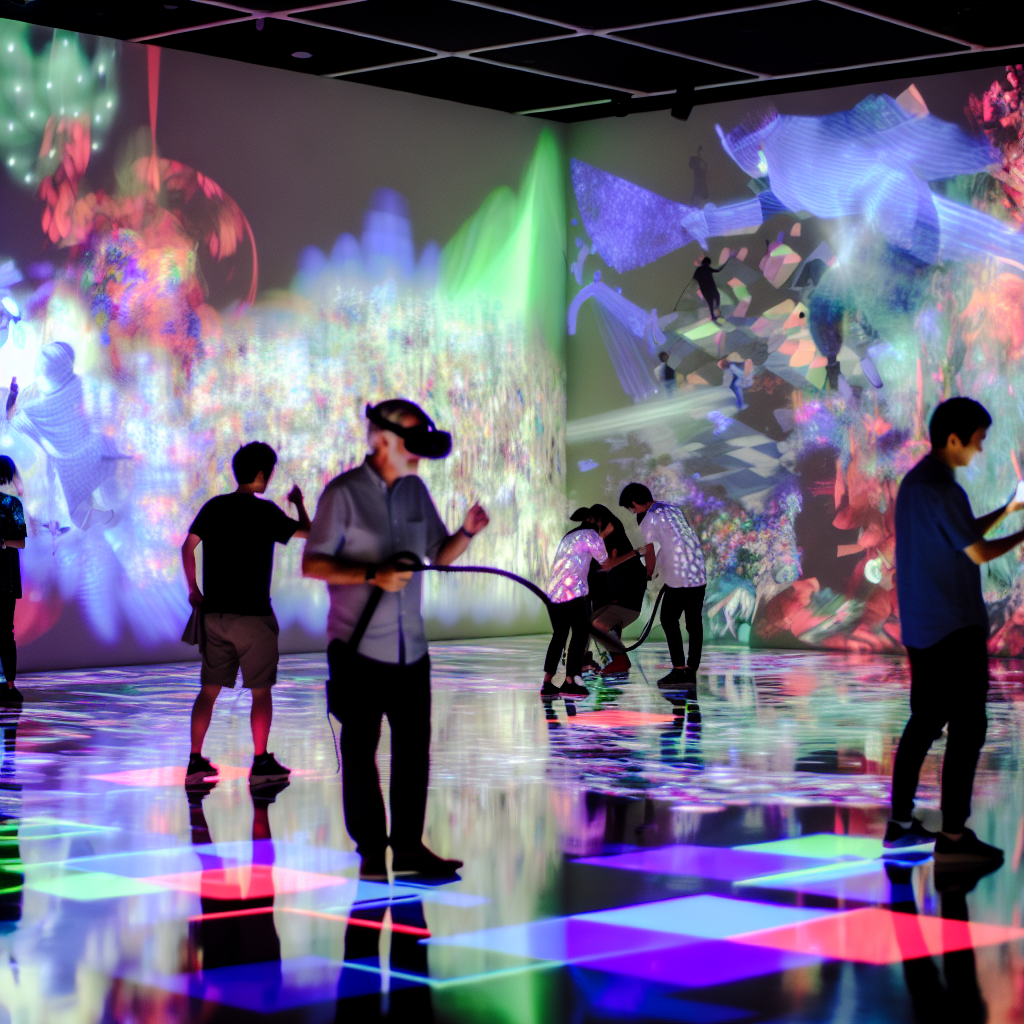The intersection of technology and art is driving a creative tech revolution, transforming traditional art forms through interactive installations and digital tools, creating immersive experiences for viewers and pushing the boundaries of digital expression.
In today's digital age, technology has revolutionized the way we create and experience art. From interactive installations to innovative digital masterpieces, the intersection of technology and art has opened up a whole new world of creative possibilities. In this article, we will explore how technology is transforming art, the evolution of digital expression, and the ways in which artists are pushing the boundaries of art and technology through interactive installations. Join us as we delve into the exciting realm of creative tech and discover the endless opportunities for new forms of digital expression.
- 1. "Exploring the Creative Tech Revolution: How Technology is Transforming Art"
- 2. "Digital Expression: The Evolution of Art in the Age of Technology"
- 3. "Interactive Installations: Pushing the Boundaries of Art and Technology"
- 4. "The Intersection of Technology and Art: Innovative Ways to Create Digital Masterpieces"
1. "Exploring the Creative Tech Revolution: How Technology is Transforming Art"
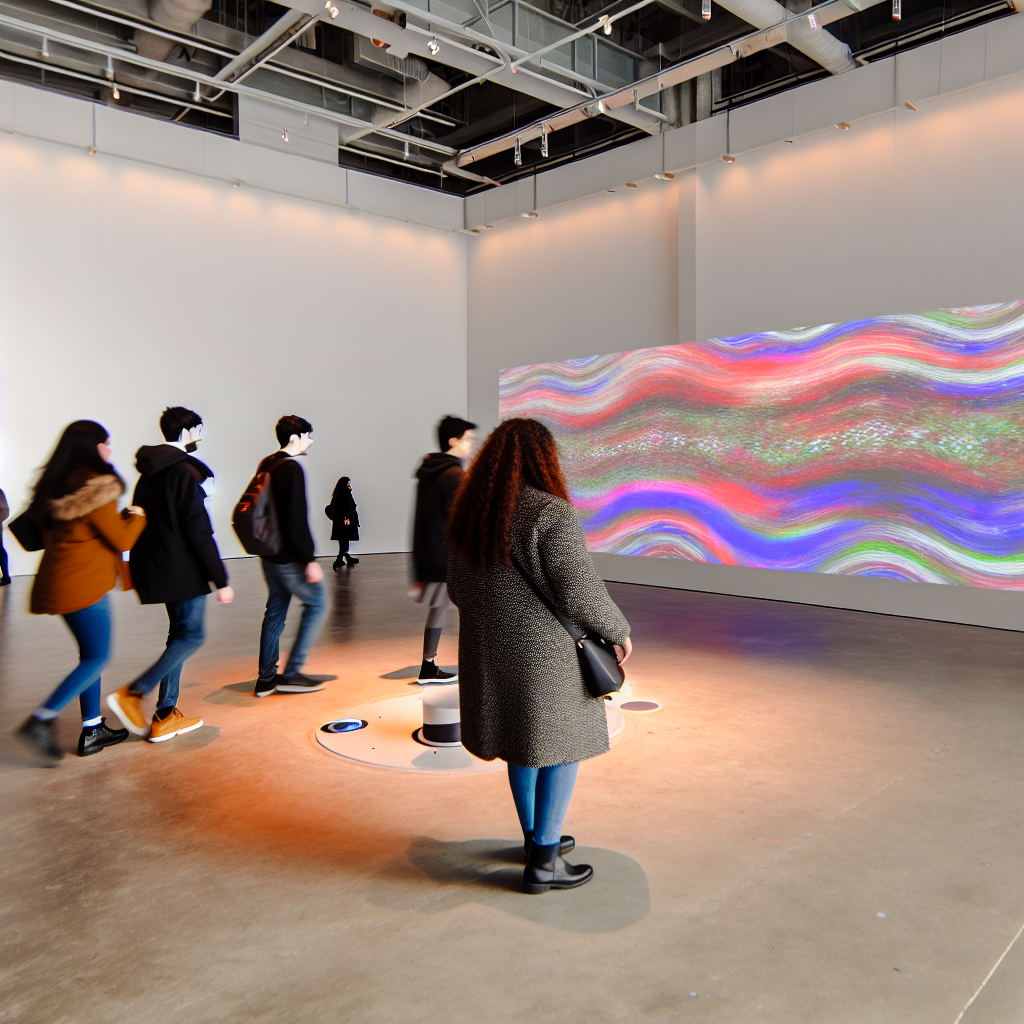
The intersection of technology and art has given rise to a creative tech revolution, transforming the way artists create and audiences experience art. Technology has opened up new possibilities for artists to explore and experiment with different forms of digital expression. From interactive installations to virtual reality experiences, artists are harnessing the power of technology to push the boundaries of traditional art forms.
One of the key ways in which technology is transforming art is through the creation of interactive installations. These immersive experiences allow viewers to actively engage with the artwork, blurring the lines between creator and audience. Through the use of sensors, cameras, and other technological tools, artists are able to create dynamic and responsive installations that react to the movements and actions of the viewer. This level of interactivity not only enhances the viewer's experience but also challenges traditional notions of what art can be.
Additionally, technology has enabled artists to explore new mediums and techniques for creating art. Digital tools and software allow artists to manipulate images, sounds, and even physical objects in ways that were previously unimaginable. Artists can now create intricate digital landscapes, manipulate light and sound, and even incorporate elements of artificial intelligence into their work. These new forms of digital expression are pushing the boundaries of traditional art forms and opening up new possibilities for creativity.
Overall, the creative tech revolution is reshaping the art world, allowing artists to explore new forms of digital expression and engage with audiences in innovative ways. As technology continues to evolve, we can expect to see even more exciting collaborations between artists and technologists, leading to the creation of truly groundbreaking and immersive art experiences.
2. "Digital Expression: The Evolution of Art in the Age of Technology"
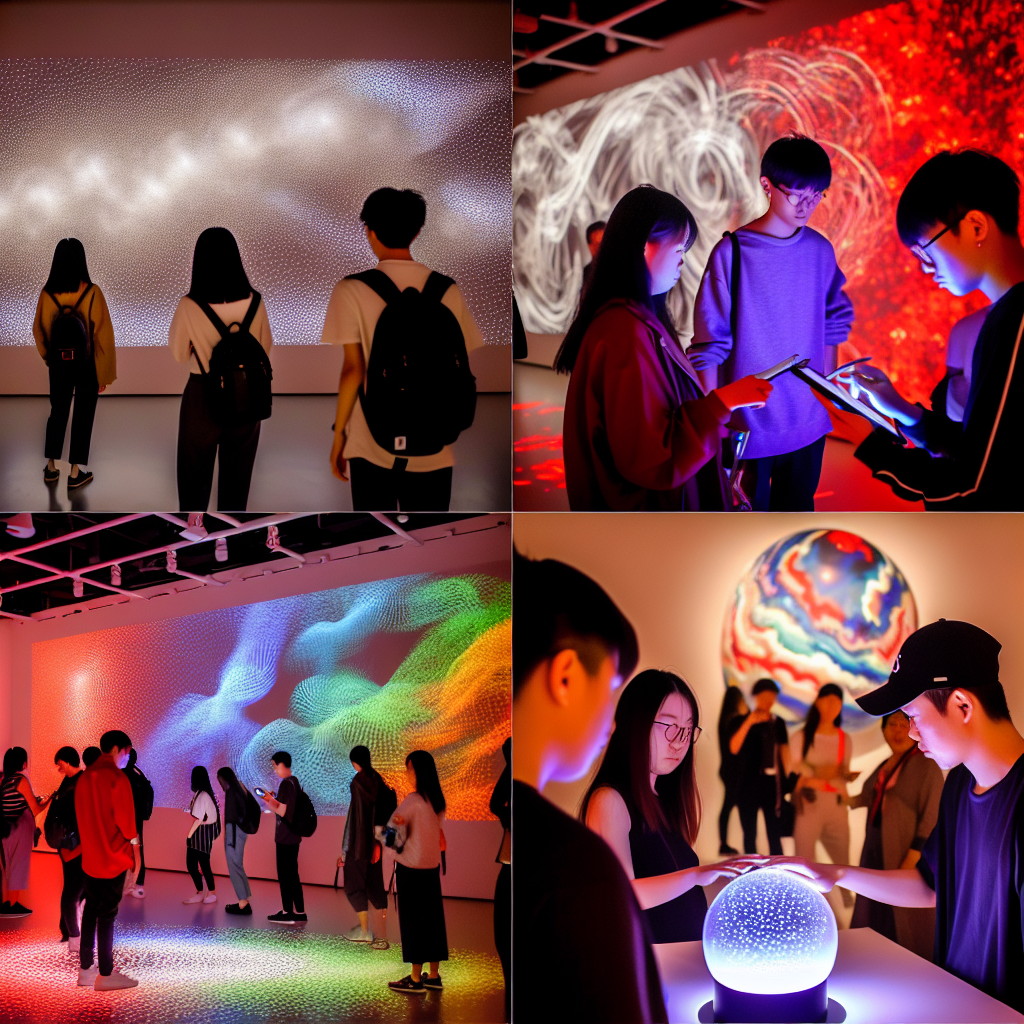
Digital expression has undergone a significant evolution in the age of technology. With the advancement of creative tech tools and interactive installations, artists now have endless possibilities to explore new forms of digital art. Technology has not only provided artists with innovative tools to create, but also new mediums to showcase their work to a global audience.
Digital expression allows artists to break free from traditional constraints and experiment with different forms of creativity. From digital painting to interactive sculptures, artists can push the boundaries of what is possible in the realm of art. With the use of technology, artists can create immersive experiences that engage the viewer in ways that were previously unimaginable.
Interactive installations, for example, have revolutionized the way we experience art. By incorporating technology such as virtual reality or motion sensors, artists can create dynamic and engaging pieces that respond to the viewer's presence. This form of digital expression blurs the lines between the physical and digital worlds, creating a truly immersive experience for the audience.
Overall, the intersection of technology and art has opened up a world of possibilities for digital expression. Artists are no longer limited by traditional mediums, but can explore new forms of creativity and push the boundaries of what is considered art. As technology continues to advance, we can expect to see even more innovative and groundbreaking forms of digital expression emerge in the future.
3. "Interactive Installations: Pushing the Boundaries of Art and Technology"
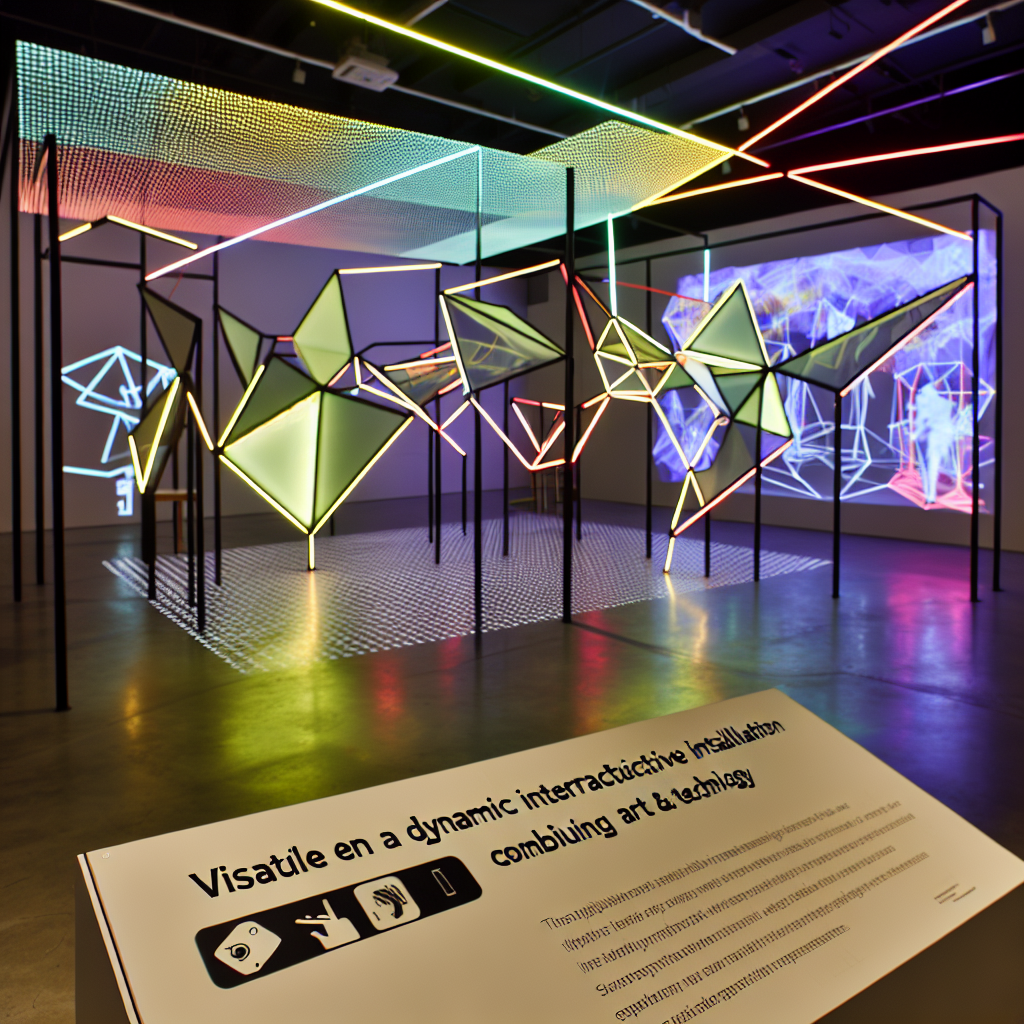
Interactive installations are a prime example of how technology and art can come together to create truly unique and immersive experiences. These installations push the boundaries of traditional art forms by incorporating elements of technology to engage audiences in new and exciting ways. By using sensors, cameras, and other interactive tools, artists are able to create dynamic and engaging pieces that respond to the movements and actions of viewers.
One key aspect of interactive installations is the ability to create a sense of connection between the viewer and the artwork. By allowing the audience to actively participate in the piece, artists are able to create a more personal and engaging experience. This sense of interactivity can lead to a deeper emotional connection with the artwork, as viewers become not just passive observers, but active participants in the creation of the piece.
Creative tech plays a crucial role in the development of interactive installations, providing artists with the tools and resources needed to bring their visions to life. Whether it's projection mapping, virtual reality, or motion sensors, technology allows artists to create immersive and interactive experiences that would be impossible to achieve through traditional means.
Overall, interactive installations represent a new frontier in the intersection of art and technology. By pushing the boundaries of what is possible in terms of digital expression, these installations offer a glimpse into the future of creative tech and the endless possibilities that come with combining art and technology.
4. "The Intersection of Technology and Art: Innovative Ways to Create Digital Masterpieces"
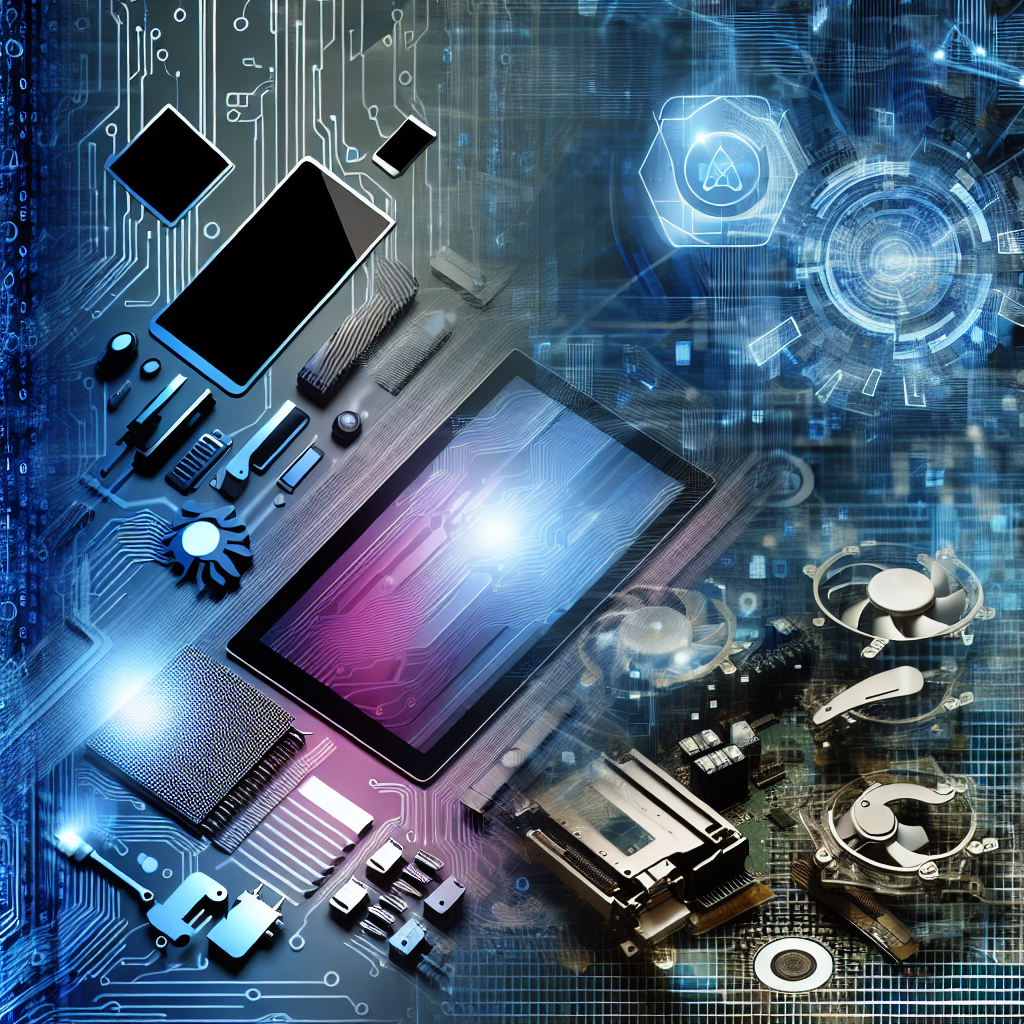
One of the most exciting aspects of the intersection of technology and art is the innovative ways in which artists are using new technologies to create digital masterpieces. With the rise of creative tech and interactive installations, artists are pushing the boundaries of traditional art forms and exploring new modes of expression.
One way in which technology is being used to create digital masterpieces is through the use of virtual reality (VR) and augmented reality (AR) technologies. Artists are able to create immersive experiences that transport viewers into virtual worlds, allowing them to interact with art in new and exciting ways. These technologies have opened up a whole new world of possibilities for artists, enabling them to create truly unique and engaging works of art.
Another innovative way in which technology is being used in art is through the use of generative algorithms and artificial intelligence. Artists are able to harness the power of these technologies to create dynamic and ever-evolving artworks that respond to their environment or even to the emotions of the viewer. This creates a truly interactive and engaging experience for the audience, blurring the lines between the creator and the viewer.
Furthermore, the use of digital tools and software has revolutionized the way in which art is created. Artists are now able to experiment with new techniques and mediums, pushing the boundaries of what is possible in the realm of digital expression. From digital painting to 3D modeling, artists are able to explore new forms of expression and create truly unique and innovative works of art.
Overall, the intersection of technology and art has opened up a whole new world of possibilities for artists, allowing them to create digital masterpieces that push the boundaries of traditional art forms. With the rise of creative tech and interactive installations, artists are able to explore new modes of expression and engage audiences in exciting and immersive ways.
In conclusion, the intersection of technology and art has opened up a world of possibilities for creating new forms of digital expression. From the creative tech revolution to interactive installations, artists are pushing the boundaries of traditional art and embracing innovative ways to showcase their work. As we continue to explore the evolution of art in the age of technology, it is clear that the fusion of these two worlds is leading to the creation of truly unique and captivating digital masterpieces. Embracing this intersection of technology and art allows for endless opportunities for creativity and expression, paving the way for a new era of artistic innovation.


